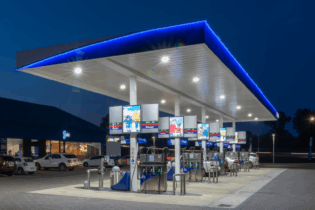Like many South African road users I am not too fond of minibus taxi drivers, especially since one, in flagrant disobedience of our road traffic laws, drove into my rear end. Of course he was not insured, which is the case with as many as 60% of registered vehicles in South Africa. Paying the R4 000 excess on my insurance, without any hope of recovering that money, was a bitter pill to swallow. Until this happened I was relatively tolerant of minibus taxi drivers who drive in the emergency lane and push in up front, or push in by driving between the solid white line and the island. But when it hit my back pocket I was deeply angered, especially when the taxi driver, thinking that I did not understand what he was saying, hurled racist abuse at me when I took him to task. So, I decided to do something about it.
The first thing was to become more aware of the taxi drivers’ transgressions, in terms of commonly understood South African road traffic laws. As I started to count the infringements I became increasingly horrified and disgusted. The extent of their civil disobedience and constantly breaking the law, almost borders on crass lawlessness, if not anarchy. The second step, motivated by a particular incident that I witnessed, was to go and talk to the Johannesburg Metropolitan Police Department (JMPD). This I did and ended up speaking to an officer in the internal complaints directorate (ICD). I was informed that there was very little that I could do as “a number of senior traffic officers owned taxi fleets.” I was gob smacked. Having no reason to doubt the officer concerned, my disgust deepened. Talk about a conflict of interest! No wonder these miscreant taxi drivers get away with breaking the law as they do. In civilized democracies this would never be tolerated. Even in China it is not allowed. But where does this come from? And why is it allowed to continue? Well, we can blame it on two things – greed and apartheid. But let me be quick to say that the latter should not be used as an excuse. The culture of civil disobedience, which became entrenched while the fight against apartheid was on, has never been adjusted, or should I say, reprogrammed by anyone since 1994. Its continuance is simply a clear failure of leadership at the political level. As to greed, a typical Alexander township taxi fleet owner demands R1 000 per day from each of his taxis.Thereafter the driver is at liberty to earn what he likes from the free (excluding petrol) use of the taxi. This explains why the taxi drivers are always in an all-fired rush, which result in them breaking the law.
Loading 30 people into a long-distance taxi is criminal and should be treated as such. One taxi was involved in a horrific accident that claimed 30 lives, including ten children, in Harrismith on 11 December 2012. Having lost control of the overloaded taxi, he ploughed head on into a truck. This incident is just one of a number of fatal accidents involving taxis. Taxi drivers who break the law and as a consequence cause the death of any person in an accident should be prosecuted for murder – as has happened in Cape Town. Furthermore, if they are not insured, the taxi drivers should be tried in a court of law and jailed if they cannot pay for the damages. South African National Taxi Council (Santaco’s) secretary general, Philip Taaibosch, in visiting the Harrismith accident scene, said, “If anyone is found to have broken the law, we as Santaco and the taxi industry as a whole, will not be able to protect that person. We will not allow that kind of lawlessness within the industry.” Sadly, they do allow it. Herein is the rub. As a supposedly controlling body, Santaco is incompetent.




